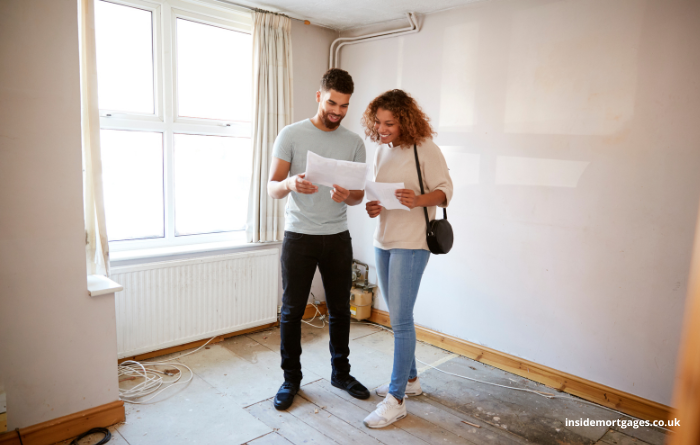What Do Mortgage Surveyors Look For When Valuing A Property
What do mortgage surveyors look for when assessing a property’s value? Mortgage surveyors are in the business of assessing risk. When assessing the value of a property, mortgage surveyors typically look for three things: the condition of the property, its location, and its amenities, as these all have the biggest impact on its direct value. The aim of the surveyor’s report is to give the lender an accurate picture of the risks associated with lending against that particular property.
Mortgage surveyors are responsible for inspecting properties that have been put up for collateral against a mortgage loan to assess the value of the property and to identify any potential problems that could affect its value. They work on behalf of the lender providing finance for the property purchase and the mortgage survey aims to provide them with an accurate idea of how much the property is worth so they can lend accordingly against it.
Mortgage Valuation Survey
When you apply for a home loan, the home that you want to buy needs to have a valuation to assess its current market value. The valuation figure establishes if the property sufficiently covers the amount required for the loan in relation to the suggested price listed by the estate agent.
This information is required by the mortgage lender because the loan is secured against the property, and in the case that the borrower defaults on payments, the property can be repossessed by the lender to settle any outstanding mortgage amount against it. Due to this, the lender needs to be satisfied that the property is worth what the buyer is paying for it.
What Does The Survey Show?
The report aims to give the lender an accurate picture of the risks associated with lending against that particular property.
The Report generated shows the valuation which is an estimate of the worth of a property, based on factors such as recent sales of comparable properties, the current condition of the property, and the location of the property. It also informs lenders of non-comprehensive details on the condition of the property, and major deficiencies and potential risks that could affect property value in future years and will usually take between 3-5 hours to put together.
The valuation helps the mortgage lender to assess the risk involved in lending money against the property. If the valuation is lower than the amount of money that the borrower wants to borrow, then the lender may require the borrower to provide additional security, such as a higher down payment or a guarantor.
What Do They Check In A Mortgage Survey?

A mortgage survey is only intended to check a property’s current market value and is primarily required by a bank to determine if the home’s value is sufficient to serve as suitable security for the amount of a borrower’s mortgage application.
The main things that are checked are:
- The condition of the property is perhaps the most important factor, as it will directly impact the value of the property. Surveyors will look for evidence of any damage or wear and tear, as well as any signs of structural problems.
- The location of the property is also important, as it can affect both its value and its desirability. A property located in a desirable area is likely to be worth more than a similar property located in a less desirable area when reviewing local market activity.
- Finally, surveyors will also assess the amenities that are available in the surrounding area. Things like schools, parks, and public transportation can all add to the value of a property.
By taking all of these factors into account, mortgage surveyors can provide lenders and borrowers with an accurate assessment of the value of their collateral.
How Does The Mortgage Provider Do The Survey?
The loan security valuation should be conducted by an RICS registered valuer instructed on behalf of the lender. If using a local surveyor, the actual inspection can be done in person when the surveyor visits the property. If they work a long way away from the property or via online records are available, they can use the latest sales statistics online to determine the property value.
The latter option is known as a desktop valuation or a desk-based valuation and is fairly common for major high street lenders with lots of comparable information for local house price data available online for similar properties in the area.
In a desk top survey, the mortgage surveyor will compare three sales transactions for similar properties online to compare and confirm key details, purchase price and their specialist advice to provide a valuation.
According to the Royal Institution of Chartered Surveyors (RICS), the type of survey conducted is based on the lender’s risk appetite, the type or construction of the property and any other known factors affecting the property that should be considered by the lender.
In either case, mortgage surveyors will be looking at the condition of the property, its location, and its amenities, without relying on the local estate agents’ sale price.
How Much Does A Mortgage Valuation Cost?
The valuation report will vary in price depending on the mortgage product, the type of home you are buying, and the type of valuation report that is needed. Some mortgage lenders will try to entice new customers to take out a mortgage with them by offering a free valuation service.
A larger property will take longer to value, and therefore cost more. A desktop valuation will take less time than a physical inspection, therefore is usually cheaper, and some mortgage products include the cost of a valuation already.
A standard mortgage valuation for a typical 2/3 bedroom property of standard construction will usually cost up to £350 for a desktop and between £400 – £750 when an inspection is required.
When reviewing mortgage quotes it’s important to check if the cost of your mortgage valuation is included in your repayment terms, or if it’s paid as an upfront cost. Including the valuation price in your mortgage finance will affect the amount of interest that you are paying back.
Mortgage Lender Requirements
A mortgage lender is a financial institution that provides loans to borrowers to purchase a property and when taking out a mortgage to buy a property, a lender will usually only lend an amount based on the valuation, rather than the purchase price.
As such they will require a valuation of the property to be carried out by a professional valuation company. The valuation report will give the lender an independent opinion of the value of the property, which will help them to decide whether to lend you the money or not, it is not a detailed survey regarding the condition of the building.
In some cases, the valuation report may also be used by the lender to set the interest rate on the loan. If you’re planning on borrowing money to buy a property, it’s important to be aware of the mortgage lender’s requirements.
Impact Of A Down Valuation Matter On Mortgage

A down valuation occurs when the surveyor decides the property is worth less than the asking price.
For example:
- A buyer and seller have agreed on a purchase price of £250,000
- The buyer has a 10% deposit of 25,000 and therefore requires a mortgage for the remaining 90% of the price which is £225,000.
- If the mortgage valuation gives a lower property value of only £200,000, then the lender would only lend 90% of this amount, £180,000.
- In this scenario, the buyer would need to make up the additional funds required to meet the agreed sale price by finding a further £45,000 or ask the seller to reduce the sale price to meet the property’s valuation figure.
In the example above, the valuation report is saying that the property is not worth the £250,000 purchase price. As a result, the lender is putting itself at greater risk of not being able to recover the full loan amount by selling the property should this be required if the borrower defaults on their loan repayments.
As you can see, a down mortgage valuation can cause difficulties for the buyer as they may need to find additional funds to make up the difference between the two figures to have their mortgage application approved, or they may need to renegotiate the purchase price with the seller to reduce the asking price.
In some cases, a down valuation can impact the mortgage approval process too as the loan amount may need to be adjusted by the mortgage lender based on the new value of the property. In this case, a revised mortgage offer would need to be re-issued and the mortgage illustration document reproduced, which can all add delays to the purchase timeline.
While a down valuation can be frustrating for buyers, it is important to remember that valuations are only estimates and that the final purchase price is ultimately up to the buyer and seller to agree upon.
Impact Of A higher Valuation Than Purchase Price
A higher valuation than the purchase price can have a positive impact on a mortgage because it means that the property is worth more than what is being paid for it. This can be helpful if the borrower needs to refinance the mortgage or if they sell the property in the future.
A higher valuation can also help to reduce the monthly mortgage payment because it means that there is more equity in the property.
The downside of a higher valuation is that the seller may want to renegotiate the sale price upwards or relist it on the market at a higher price. As the eventual sale price will also impact the stamp duty paid and the amount of council tax paid (as this is calculated on a property’s value), then you could end up with higher purchase and running costs if the property is valued at more than the sale price.
Is A Mortgage Survey The Same As Structural Survey?
No, a mortgage survey is not the same as a structural survey. Both of these types of house survey serve different purposes for different people. The following overview highlights the differences between them and when they are used in the process of buying a home.
- A mortgage survey is carried out by a registered valuer. The purpose of this property survey is to establish the current value of the property and it is primarily for the lender’s benefit. The surveyor will assess the value of the property and make sure that it meets all the requirements for the loan. As the surveyor only visits your property briefly, they can only pick up on major visible defects, which is why a Strucuteral survey is needed for more detail.
- A Structural survey is a type of full building survey carried out by a Chartered Building Surveyor. The purpose of this property survey is to get a thorough understanding of the overall condition of the property and whether it is safe to live in or not. This report is for the benefit of a buyer or seller.
A structural survey is the most detailed type of building survey that can be requested by a buyer and will highlight any problems with the property that may have been missed in the viewing. The benefit is that the findings can be used to negotiate the sale price, if expensive issues are discovered that will need fixing, like needing a new roof, electrical wiring or windows.
Things that are looked at in a building survey include the building materials used, the quality of the fittings and structure of the building, flooding risks, and any known issues such as dampness, pests, fire safety compliance, and water tightness.
A structural survey requested by a seller will highlight the same things outlined above but will enable them to list the property at a fair price when taking into consideration any known works that will need to be done by the potential buyer in the short, medium, and long term.
Other types of building survey include a homebuyer report and condition survey and typically cost less than a structural survey. Both reports are less detailed in their scope and will not provide a full picture of the property’s significant defects, conditions and any remedial works needed.
Summary
- Mortgage surveys are carried out by registered valuers to assess the current value of the property.
- When assessing the value of a property, mortgage surveyors typically look for three things: the condition of the property, its location, and its amenities, as these all have the biggest impact on its direct value.
- A mortgage survey is a lender’s valuation for the lender’s benefit and is an important step in the mortgage process that determines the maximum loan amount that a lender is willing to provide.
- A mortgage valuation should always be undertaken by a Registered Valuer.
- A structural survey is not the same as a mortgage survey and is carried out by a Chartered Building Surveyor. Its purpose is to get a thorough understanding of the overall condition of the property and whether it is safe to live in or not. This report is for the benefit of a buyer or seller.
- If you are having trouble borrowing the amount you need, then a whole-of-market mortgage broker should have access to every available mortgage deal so it can recommend suitable lenders for your financial circumstances and the type of property you’re after.
If you’re looking to get a mortgage, after your application has been submitted, one of the key steps in the process is for the lender to order a mortgage survey. A mortgage survey will help to assess the value of the property and its location to determine if it’s worth the amount being paid for it. The mortgage valuation figure determined by the report will be used by the lender to decide how much they are prepared to lend to the mortgage applicant against the property and should be carried out by a Chartered Surveyor.

